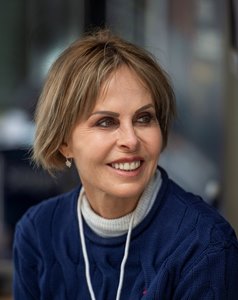Managing COVID-19: Sequel Stays the Course


This is the sixth in a series of Q&A sessions with farm managers, general managers, and farm owners about how they are handling a Thoroughbred operation amid the COVID-19 pandemic.
Becky Thomas is staying on top of the latest protocols from multiple governments with her breeding operation, Sequel New York, and Sequel's training center in Central Florida. The New York farm sits on 232 acres in Hudson and stands the state's longtime leading sire, Freud. Breeding operations are continuing under strict protocols to reduce person-to-person contact, and the horses in Florida prepare for the delayed 2-year-old in training sales on a 178-acre property in Ocala.
In an interview with BloodHorse associate editor Christine Oser, Sequel owner Thomas discussed how the properties and Sequel employees have fared during the pandemic and steps the operation is taking to remain healthy.
BloodHorse: How is the breeding farm doing during the pandemic, and what are some of the new protocols in place?
Becky Thomas: At the New York farm, no one is allowed to exit their vehicle when they come for a breeding. Our staff gets the mare off the trailer. … That person (who brought the mare) has to leave the premises during the breeding, and then we call when it's over and we bring the mare back out to the trailer and reload them so that there is no contact between the driver as well as our staff.
We've been in self-quarantine mode for so long. The majority of our staff live on the farm, so it's kind of like one big farm family. No outside visitors are on the farm. No one can come look at their foal. No one can look at the breeding. No one's allowed to have guests over because New York is still on total shutdown. There is no reopening plan. There's a potential for construction opening up on the 15th, but as far as our farm plan, there is no other protocol in place except (to) remain in the sheltering-in-place mode.
The difficulties with that have been with some of our smaller breeders that have not been able to have veterinary services that have wanted to make farm visits. Those farm visits require interaction with farm personnel, so in some of the smaller areas of less populous farms, there's been a movement toward the individual mare owner bringing the mare to the clinic for examination, palpation. And, of course, that has not worked very well because most of our breeders don't have the financial resources to do that.
I do feel like we will have less mares bred—mares that have been chosen to stay home and breed locally if they were not near our farm.
As it's not a selling season for us, it's not been a change in routine as far as mares coming in to be bred, mares foaling; it's just been simply staff remain in place, mares remain in place.
BH: What about your training center in Florida?
BT: In Florida, of course, everything's been moved back. Our April sale is now scheduled for June, and we're hoping that our governor (Ron DeSantis) will continue to see positive results so that we can have a sale that has some semblance of an auction. We don't know exactly what our sale is going to look like until we go further. Each state is under (its) governor's decision, so what they have in Florida may not be what they have in Kentucky, and what they have in Kentucky may not be what they have in New York. We will be the first ones to start off with a sale, and no one really knows until we get direction from the governor what our sale is actually going to look like, what constitutes a gathering, what constitutes how many people can be there.
As far as our own personal herd health, it's very much the same as we have in New York. We have a farm family that for the most part does not live on the farm. … We have not had any incidents of COVID-19 at either location.
BH: It seems that many breeding farms are used to keeping everything disinfected. What are ways Sequel is doing so?
BT: On the breeding side, we have a quarantine barn, so any horse that comes in from off farm that is to become a resident is subject to a (polymerase chain reaction) test. They each have individual paddocks until we get clearance that they are negative PCRs before they're filtered into our resident mare base. That's been in place for many years.
As far as Florida, we actually purchase products in bulk from the prison system. We buy laundry detergent, we buy bleach, we buy corn oil from them in 50-gallon drums. One of the things they started manufacturing was large vessel disinfectants, so we now are the recipients of large volumes of disinfectants.
BH: Has that helped you keep your hands on fast-selling disinfectants?
BT: Yes, we all have individual Purell (hand sanitizer) containers that we replenish from our bulk supplies.
BH: Have you adjusted your training regimen with your 2-year-olds at all?
BT: There's just so little that's within our control. I just started two-minute licking some of the horses that were scheduled for April (sales), getting ready for a sale that's going to be in June. I have my horses pretty much on autopilot because we don't know (if the sales schedule will change again). We think we're going to have a sale, and I'm looking forward to a sale.
Frankly, I'm much more excited about there being condition books and races carded because it literally made no economic sense to try to conduct a sale without racing being actively run. I look forward to Kentucky and California following suit, and I look forward to New York getting to that point in the near future.
